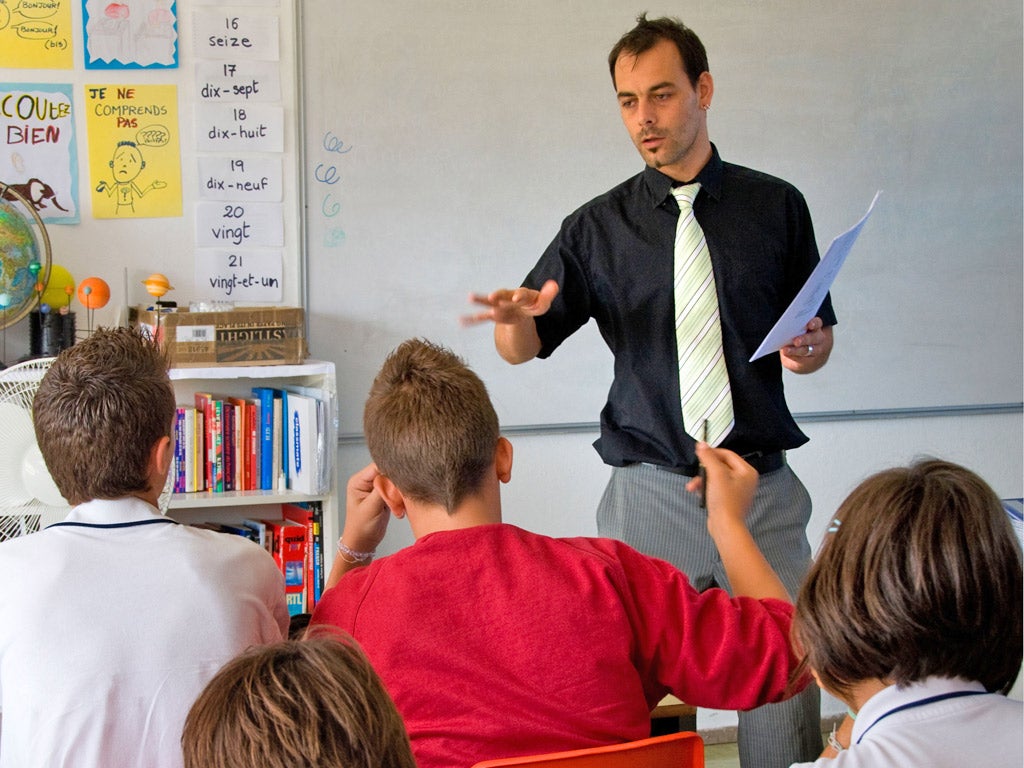John Bangs: 'Teaching reform cannot wait for a new generation'
Michael Gove supports strong heads – but it is investing in teachers that delivers real results, argues John Bangs

Your support helps us to tell the story
From reproductive rights to climate change to Big Tech, The Independent is on the ground when the story is developing. Whether it's investigating the financials of Elon Musk's pro-Trump PAC or producing our latest documentary, 'The A Word', which shines a light on the American women fighting for reproductive rights, we know how important it is to parse out the facts from the messaging.
At such a critical moment in US history, we need reporters on the ground. Your donation allows us to keep sending journalists to speak to both sides of the story.
The Independent is trusted by Americans across the entire political spectrum. And unlike many other quality news outlets, we choose not to lock Americans out of our reporting and analysis with paywalls. We believe quality journalism should be available to everyone, paid for by those who can afford it.
Your support makes all the difference.It is 18 months since the Education Secretary Michael Gove pledged, in his first communication to his department, to "liberate headteachers and teachers". Yet, in a subsequent speech to the National College, his commitment to teachers' liberation appeared to have given way to a "vision for education" that involved a "determination to give school leaders more power and control".
So enthusiastic was a rumoured favourite for chief inspector of schools, Sir Michael Wilshaw, about the prospect of more power and control that he was reported in February as arguing for a Pale Rider model of headship. Likening head teachers to Clint Eastwood-type lone warriors, he argued that we need "heads with ego" who "enjoy power and enjoy exercising that power".
All of this begs the question: where is the Government's parallel vision for the future of the teaching profession? Globally, the evidence is stacking up that strong, self-confident teaching professions are vital to the outstanding status Gove demands. What is more, the evidence points not only to the importance of the profession as a whole being involved in education reform but its representative unions. In a paper for this year's International Summit for the Teaching Profession in New York, the OECD argued that successful reform required "teachers to contribute as the architects of change, not just its implementers" and that "some of the most successful reforms are those supported by strong unions".
The same paper argued that "successful reform cannot wait for a new generation of teachers; it requires adequate investment in the present teacher workforce, providing quality professional development, adequate career structures and diversification." Helen Timperley's recent research review has found that professional development was one of the "highest impact policy levers" with "potentially transformational effects on social and educational outcomes". Yet there is no national strategy for teachers' professional development.
And what of teachers' capacity to influence reform? Only two classroom teachers are taking part in the 15-strong panel for the review of the National Curriculum. Structurally, teachers have been disempowered by the abolition of the General Teaching Council, yet headteachers and school leaders retain the National College. It appears that the Faustian pact that the Government has made with headteachers, to implement its reforms in exchange for full autonomy in decision-making, is leading to the balkanisation of the teaching profession. There is no advantage to head teachers in this situation. A strong, self-confident professional teaching community leads to positive and proactive teacher leadership in schools. In turn, this enhances the capacity of heads to do their jobs.
What should Gove do next? He could announce at the Conservative Party conference that he intends to place the teaching profession at the centre of teacher policy-making and that he sees strong, proactive unions as essential to successful reform. He could recognise that for professional development to be effective, teachers should own their own learning and receive a guaranteed entitlement to funding. He could ask how teachers can be enabled to share good practice. He could also return to his party's review of public services and propose the appointment of a chief education adviser at the heart of government, drawn from the profession. From the evidence, this move would undoubtedly benefit the one group schools are for: children and young people.
John Bangs is a senior research associate at Cambridge University and former head of education at the NUT
Join our commenting forum
Join thought-provoking conversations, follow other Independent readers and see their replies
Comments